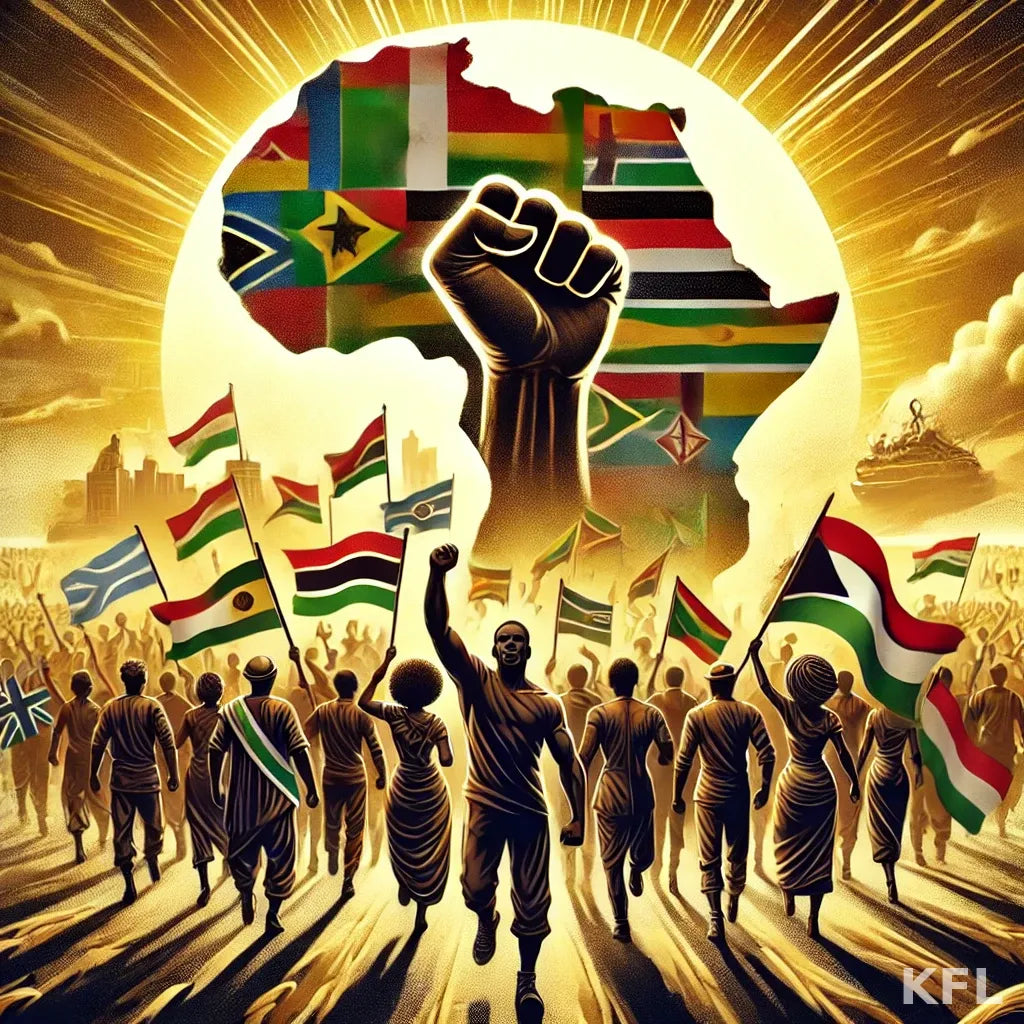
The Decolonization of Africa and Its Iconic Leaders
Share Label
Decolonization in Africa marks one of the most significant turning points in modern history. For centuries, the African continent endured domination by European powers, exploited for its natural resources and its people enslaved under various colonial systems. However, starting in the 20th century, a wave of revolts, political struggles, and nationalist movements emerged, led by courageous leaders who fought for the independence of their nations.
This article highlights the great leaders of African decolonization and their contributions to liberating the continent.
1. Kwame Nkrumah and Ghana’s Independence (1957)
Ghana became the first African country to achieve independence in 1957, thanks to the efforts of Kwame Nkrumah.
- He founded the Convention People’s Party (CPP) and mobilized the population through campaigns of civil disobedience.
- Nkrumah strongly advocated for Pan-Africanism, envisioning a united and free Africa.
- His iconic statement: “The independence of Ghana is meaningless unless it is linked to the total liberation of Africa.”
2. Patrice Lumumba and Congo’s Fight for Independence (1960)
Patrice Lumumba stood out as one of the most charismatic leaders in the struggle for the Belgian Congo’s independence.
- He founded the Congolese National Movement (MNC), rallying the Congolese people against Belgian rule.
- Lumumba’s speech at Congo’s independence on June 30, 1960, boldly denounced the suffering under colonial rule.
- He was tragically assassinated in 1961, becoming a martyr for African freedom.
3. Jomo Kenyatta and Kenya’s Liberation (1963)
Jomo Kenyatta played a critical role in securing Kenya’s independence after years of resistance against British colonialism.
- A leader of the Mau Mau movement, which took up arms against colonial rule.
- He spent seven years in prison before becoming Kenya’s first president.
- Kenyatta promoted “Harambee” (working together), striving to unite post-colonial Kenya.
4. Ahmed Sékou Touré and Guinea’s Independence (1958)
In 1958, Guinea became the first African country to reject French oversight and declare immediate independence under Ahmed Sékou Touré’s leadership.
- He famously told General de Gaulle: “We prefer poverty in freedom to wealth in slavery.”
- In retaliation, France dismantled Guinea’s infrastructure before leaving.
- Touré later established an authoritarian regime, but his bold stance against colonialism remains historic.
5. Nelson Mandela and the End of Apartheid (1994)
Although South Africa achieved nominal political independence earlier, it remained under the oppressive apartheid system. Nelson Mandela dedicated his life to dismantling this racist regime.
- He led the African National Congress (ANC) and was imprisoned for 27 years.
- Upon his release in 1990, Mandela negotiated the end of apartheid with the white-led government.
- In 1994, he became South Africa’s first Black president.
6. Thomas Sankara and Burkina Faso’s Revolution (1983–1987)
A revolutionary leader and Pan-Africanist, Thomas Sankara initiated radical transformation in Burkina Faso after assuming power in 1983.
- He renamed Upper Volta to Burkina Faso (“Land of the Upright People”).
- Sankara implemented reforms in education, agriculture, and self-sufficiency.
- Assassinated in 1987, Sankara left a legacy of anti-colonial struggle and a vision for African self-determination.
Conclusion
Africa’s decolonization was a fierce battle led by visionary leaders who defied colonial empires. Each of these heroes played a vital role in the continent’s liberation, though the legacies of colonization are still visible today through neocolonialism and political challenges.
Their struggle reminds us that Africa’s sovereignty and dignity are ongoing pursuits, and their legacy should inspire future generations to continue the quest for a fully liberated and united Africa. ✊🏾🌍









